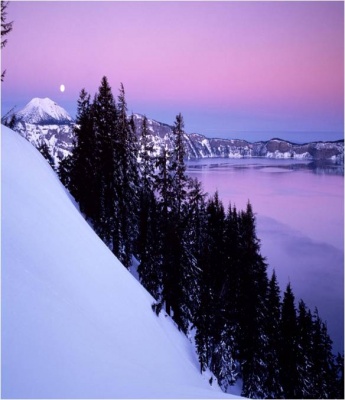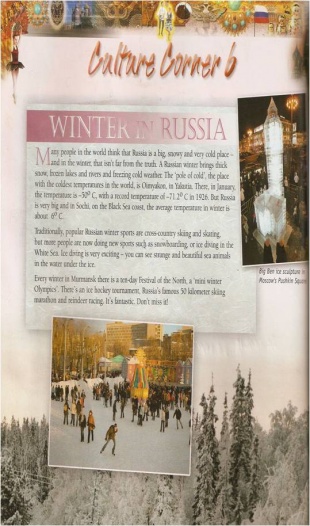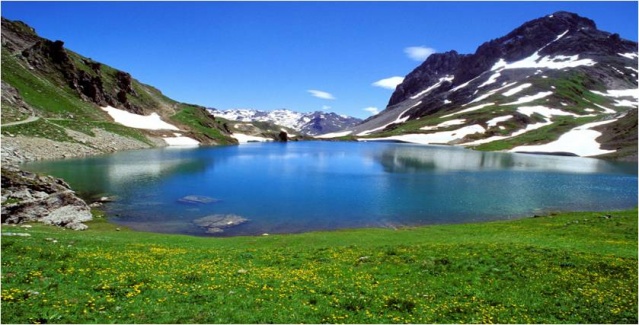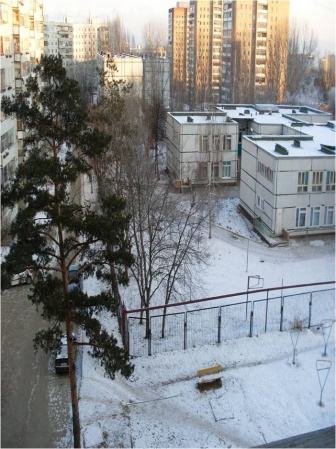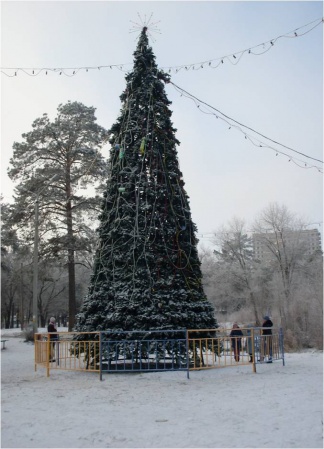Урок английского языка "Зима в России и Великобритании" в 6 классе
Составитель:Рубцова Наталья Алексеевна, учитель английского языка МОУ лицея №6.
Цели урока:
1 Формировать коммуникативную и информационную компетенции.
2 Совершенствовать умение учащихся высказываться о зимних климатических условиях России и Великобритании.3 Совершенствовать умение использовать в речи лексику и структуры по теме.
4 Систематизировать знания учащихся об особенностях климатических условий России и Великобритании.
5 Совершенствовать умение учащихся работать в группе.
6 Воспитывать социокультурное сознание.
Оборудование урока:
ПК, проектор, раздаточный материал с индивидуальными и групповыми заданиями на аудирование и грамматику, заготовленные постеры с картинками и планом работы для групп.
Урок проходит в медиа-классе.
Тип урока: формирование умений и навыков.
План урока:
I Организационный момент
II Речевая зарядка
III Проверка домашнего задания
IV Чтение текстов с различными установками и контроль понимания прочитанного
V Подготовка к пересказу, пересказ по ключевым словам и проверка понимания прослушанного
VI Физкультурная пауза
VII Повторение грамматического материала
VIII Выполнение грамматического теста
IX Выполнение творческого задания в группах
X Доклады групп учащихся
XI Заключительный этап урока
Ход урока:
1. Организационный момент (1 мин.)
Today we are going to talk about the weather in Russia and in Great Britain. You’ll read texts, make notes in the factfiles, then we’ll discuss them. You will use comparison of adjectives in your speech. You will pass 2 tests. And at the end of the lesson you’ll make a project about winter in Togliatty this year. You’ll get marks for the work in groups and tests.
II Речевая зарядка. (2 мин.)
1.What season is it now?
2.Is it windy/snowy/rainy/cloudy?
3.Is it cold/cool/warm?
4.Is the sun shining brightly?
5.Are there any leaves on the trees?
6.What’s the temperature?
Возможные ответы учащихся:
1.It’s winter.
2.It’s cloudy, windy and rainy. It’s not snowy.
3.It’s cool.
4.The sun is not shining.
5.There are no leaves on the trees.
6.The temperature is 4 degrees below zero.
III Проверка домашнего задания (2 мин.)
Учитель делит учащихся на 2 группы. Каждая группа получает текст для чтения.
It was your home task to read the texts about winter and translate the words from the glossary box. Now we will work with these texts. This is for your group and this is for yours. (Учитель раздаёт учащимся тексты для чтения.) I will call pupils who read about winter in Russia “Russians”, and those who read about winter in Great Britain will be “Britains”.
Работа по цепочке.
Read and translate the words from the glossary box. Work one by one.
IV Чтение текстов с различными установками и контроль понимания прочитанного. (9 мин.)
1)Чтение текстов с установкой на общее понимание. Индивидуальная работа учащихся.
Read the text and tick the topics that are mentioned (упомянуты). 2 minutes for you.
2) Проверка общего понимания прочитанного.
Which topics were mentioned?
Read the text and tick the topics which are mentioned (упомянуты)-2 minutes.
Topics mentioned
winter weather
lowest temperatures
winter sports
popular winter dishes
interesting things you can see
New Year presents
Many people in the world think that Russia is a big, snowy and very cold place- and in the winter, that isn’t far from the truth. A Russian winter brings thick snow, frozen lakes and rivers and freezing cold weather. The “pole of cold”, the place with the coldest temperatures in the world, is Oimyakon, in Yakutia. There, in January, the temperature is –50 C, with the record temperature of –71.2 C in 1926. But Russia is very big and in Sochi, on the Black Sea coast, the average temperature in winter is about 6 degrees.
Traditionally, popular Russian winter sports are cross-country skiing and skating, but more people now are doing new sports such as snowboarding, or ice diving in the White Sea. Ice diving is very exciting- you can see strange and beautiful sea animals in the water under the ice.
Every winter in Murmansk there is a ten-day Festival of the North, a “mini winter Olympics”. There’s an ice hockey tournament, Russia’s famous 50 kilometer skiing marathon and reindeer racing . It’s fantastic. Don’t miss it!
Glossary.
Frozen- замёрзший
freezing- ледяной
the “pole of cold”- «полюс холода»
average- средний
cross- country skiing- езда на лыжах по пересечённой местности
tournament- турнир
reindeer racing- гонки на северных оленях
marathon- марафон
The key: winter weather, lowest temperatures, winter sports, interesting things you can see.
Read the text and tick the topics which are mentioned (упомянуты)-2 minutes.
Topics mentioned.
Winter weather
popular winter dishes
winter sports
interesting things you can see
Christmas presents
The climate in the UK is generally mild and temperate due to the influence of the Gulf Stream. The climate in Britain is usually described as cool, temperate and humid.
The weather is so changeable that the English often say that they have no climate but only weather. The most characteristic feature of Britain’s weather is its variability. The English also say they have three variants of weather: when it’s rains in the morning, when it’s rains in the afternoon or when it’s rains all day long.
Rainfall is more or less even throughout the year. The average range of temperature (from winter to summer) is from 15 to 23 degrees above zero. Winter temperatures below 10 degrees are rare. It seldom snows heavily in winter, the frost is rare. January and February are usually the coldest months.
So, we may say that the British climate has three main features: it is mild, humid and changeable. That means that it’s never too hot or too cold. Winters are extremely mild. Snow may come but melts quickly. In winter the cold is humid cold, not the dry one.
In winter boys play football or Rugby, while girls play netball or hockey. Netball is similar to basketball. They are 7 players (usually girls) in each team. They throw the ball through the net at the top of three-metre post. In some schools boys and girls play tennis.
New Year’s Eve is a more important festival in Scotland than in England, and it is called Hogmanay. It was believed that the first person to visit one’s house on New Year’s Day could bring good or bad luck. In England the most important holiday is Christmas.
Glossary.
Mild- мягкий
temperate- умеренный
due to- вызванный, обусловленный
influence- влияние
humid- сырой, влажный
variability- изменчивость
the average range of- средний диапазон
The key: winter weather, winter sports, interesting things you can see.
3) Чтение текстов с установкой на детальное понимание. Работа в группах.
Read again and complete the factfile (4 minutes)
| Typical winter weather | ........................... |
| Temperature in January | ........................... |
| Winter sports | ........................... |
| Interesting things you can see | ........................... |
Look at the factfiles. To the left there are topics, which were mentioned in the texts and to the right there are empty lines. You should complete them with the words and word combinations from the texts. One of you will write, the others will give ideas. Discuss in groups. Read again and complete the factfile. 4 minutes for you. Possible answers.
Possible answers.
Winter in Russia.
| Typical winter weather | Thick snow, frozen lakes and rivers, freezing cold weather |
| Temperature in January | Minus 50 degrees in Oimyakon, 6 degrees in Sochi. |
| Winter sports | Skiing, skating, snowboarding, ice diving |
| Interesting things you can see | A ten-day Festival of the North in Murmansk |
Winter in Great Britain.
| Typical winter weather | Rains, it seldom snows heavily, the frost is rare |
| Temperature in January | Minus 10 degrees |
| Winter sports | Football, rugby; netball, hockey |
| Interesting things you can see | Hogmanay, First Footing; Christmas |
4) Контроль детального понимания прочитанного. Беседа по содержанию текстов (3 мин.)
Answer my questions using your factfiles.
1) What’s the typical winter weather in Russia? What does the Russian winter bring?
2) What and where is the lowest temperature in Russia?
3) What are traditionally popular Russian winter sports?
4) What interesting things can you see in winter?
1) What’s the typical weather in winter in Great Britain? Does it often rain?
2) What are the coldest months? What’s the lowest temperature?
3) What are the popular winter sports for boys and girls?
4) What are the most important winter festivals in Great Britain?
V Подготовка к пересказу, пересказ по ключевым словам и проверка понимания прослушанного. (6 мин.)
1) Подготовка к краткому пересказу
Discuss who will say what in your groups to act out your reports. Use your factfiles. 2 minutes to get ready.
2) Доклад первой группы о зиме в России и выполнение второй группой теста.
“Russians” will begin with the report. While listening you “Britains” will be doing a test. Read the statements and decide if they are true or false. Then you will change your parts. You have 2 minutes to do the task.
Listen to the report about winter in Russia and write true (t) or false (f) (2 minutes)
1) Russian rivers and lakes are not frozen in winter.
2) A Russian winter brings thick snow and freezing cold weather.
3) Popular Russian winter sports are cross-country skiing and skating.
4) There’s a ten-day Festival of the North in Sochi.
5) The place with the coldest temperatures in the world is Oimyakon, in Yakutia.
The key:1) f 2) t 3) t 4) f 5) t
3) Доклад второй группы о зиме в Великобритании и выполнение первой группой теста.
Now “Britains” it’s your turn. “Russians” will do a test. 2 minutes for your work.
Listen to the report about Great Britain and write true (t) or false (f) (2 minutes)
1) It often rains in Great Britain.
2) In winter it’s often very frosty in Great Britain.
3) The weather is changeable (изменчивый) in Britain.
4) June and July are usually the coldest month.
5) New Year’s Eve is called Hogmanay in Scotland.
The key: 1) t 2) f 3) t 4) f 5) t
VI Физкультурная пауза. (2 мин.)
Are you tired?
Close your eyes and listen to me. Imagine. It’s winter. The temperature is 30 degrees below zero. The strong wind is blowing. It’s snowing heavily. You are standing alone in the street. Are you cold?
Open your eyes. Let’s do some exercises to warm.
Do you feel warmer?
VII Повторение грамматического материала (2 мин.)
Now you know a lot about winters in these countries. We may compare the peculiarities. To do this you should use comparison of adjectives in your speech. Let’s revise some grammar material in Russian.
1) Какие прилагательные мы называем многосложными?
2) Как образуется сравнительная и превосходная степени у одно- и двусложных прилагательных? Приведи пример.
3) Как образуется сравнительная и превосходная степени у многосложных прилагательных? Приведи пример.
VIII Выполнение грамматического теста (5 мин.).
1) Индивидуальная работа учащихся
Now you are ready to write a test. Change the adjectives into comparative or superlative form. You have 3 minutes.
Make comparison - 3 minutes.
1) The climate is …(mild) in Britain than in Russia.
2) It is …(rainy) in Britain than in Russia.
3) New year’s Eve is the …(important) festival in Scotland.
4) Hogmanay is …(important) in Scotland than in Britain.
The key: 1) milder, 2) rainier, 3) most important, 4) more important.
Make comparison - 3 minutes.
1) Winters are …(frosty) in Russia than in Great Britain.
2) The average winter temperatures are …(low) in Russia than in Great Britain.
3) Oimyakon, in Yakutia is the …(cold) place in Russia.
4) The …(popular) winter sports in Russia are cross-country skiing, skating and
snowboarding.
The key: 1) frostier, 2) lower, 3) coldest, 4) most popular.
2) Контроль выполненного задания.
Let’s check your tests orally and I will collect them.
IX Выполнение творческого задания в группах
(4 мин.)
In groups make a poster about winter in your town.
Include this information.
X Доклады групп учащихся (4 мин.)
XI Заключительный этап урока (3 мин.)
1) Подведение итогов урока.
We have done a lot today. We have discussed the peculiarities of the weather in two countries, have written a short test and have made a project. Let’s finish with a tongue twister.
2) Оценка деятельности учащихся. Выставление отметок за работу в группах.
I’ll check your tests and give you marks later. Now your marks for group work.
3) Домашнее задание.
Get ready for a dictation with the words from Unit 5.
Презентация по теме: http://openfile.ru/444460/
